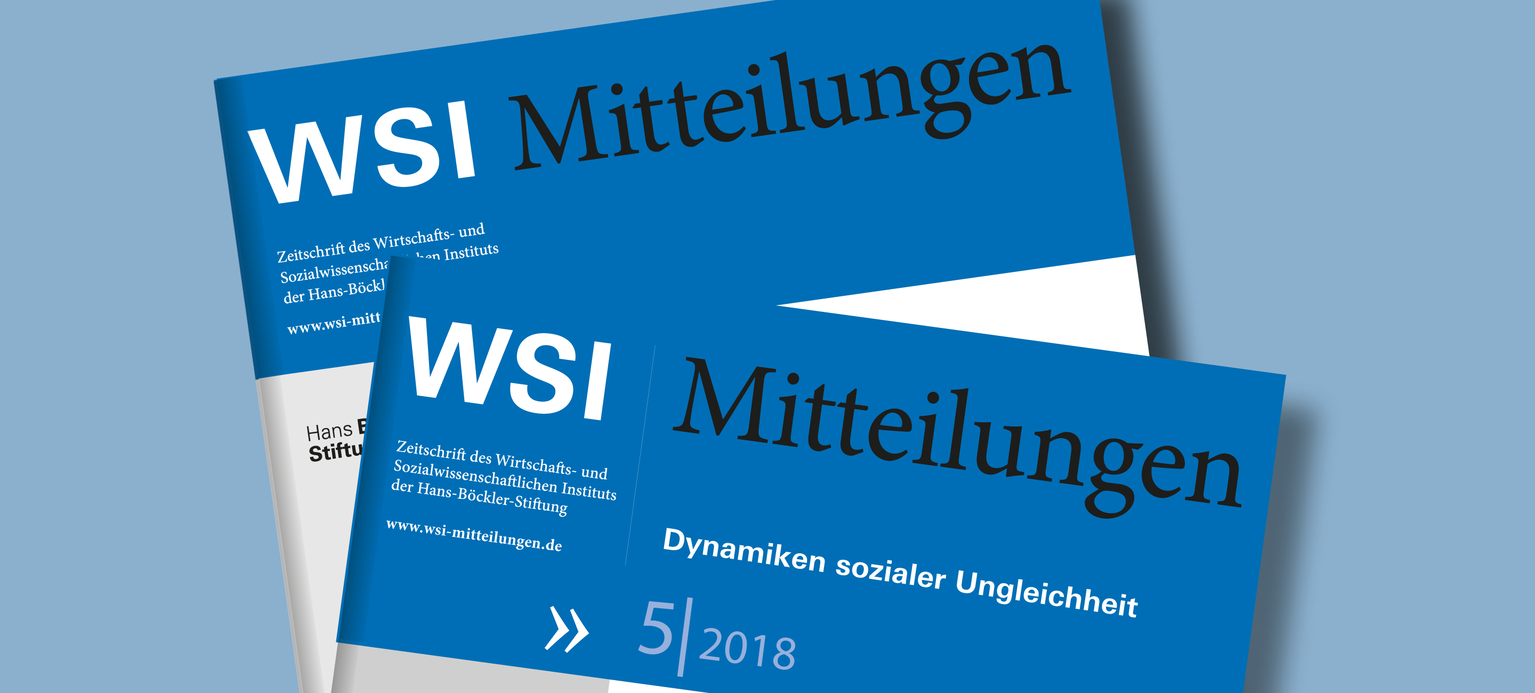Binder, Barbara / Haupt, Andreas : Wohlstand für alle? Die Entwicklung einkommensschwacher Haushalte seit 2005
WSI-Mitteilungen 5/2018, Seiten 358–369
Zusammenfassung
Der Beitrag widmet sich der Stabilität der Einkommensungleichheit seit 2005 und legt einen besonderen Fokus auf die Entwicklung einkommensschwacher Haushalte. Die Autoren zeigen, dass die Stagnation der Ungleichheit über weite Strecken der Einkommensverteilung gleichzeitig mit einer Stagnation der Einkommen einherging. Mit dem Aufschwung am Arbeitsmarkt seit 2005 kam es daher nicht zu einem gestiegenen Wohlstand für einkommensschwache Haushalte. Die Analysen verdeutlichen, dass sich hinter der stagnierenden Ungleichheit vielfältige sich überlagernde Entwicklungen verbergen, die öffentlich kaum diskutiert werden. Stark in den Arbeitsmarkt integrierte Haushalte haben zum Teil deutlich positive Einkommensentwicklungen und können als Gewinner des Konjunkturaufschwungs angesehen werden. Vom Arbeitsmarkt abgekoppelte Haushalte – insbesondere solche, deren Mitglieder nicht erwerbstätig oder lediglich marginal beschäftigt sind – sind die Verlierer einer zunehmend auf hohe Arbeitsmarktintegration setzenden Sozialpolitik. Eine daraus resultierende Ungleichheitsverschärfung im unteren Bereich der Einkommensverteilung wurde durch Rentenerhöhungen überdeckt.
Abstract
The article deals with the stability of income inequality since 2005 and focuses in particular on the development of low-income households. The authors show that the constant level of inequality has been accompanied by a stagnation of household incomes for most of the income distribution. The upswing in the labour market since 2005 has therefore not led to increased prosperity for either the majority of households nor for those with low incomes. The study shows that the stagnating income inequality conceals a multitude of overlapping developments that are rarely discussed in public. Some households that are strongly integrated into the labour market experience markedly positive income trends and can hence be regarded as the winners of the economic upswing. Households that are disconnected from the labour market – especially inactive households and households in marginal employment – are the losers in a social policy set-up that is increasingly focused on high labour-market integration. A resulting aggravation of inequality in the lower income distribution group was recently overshadowed by pension increases.
